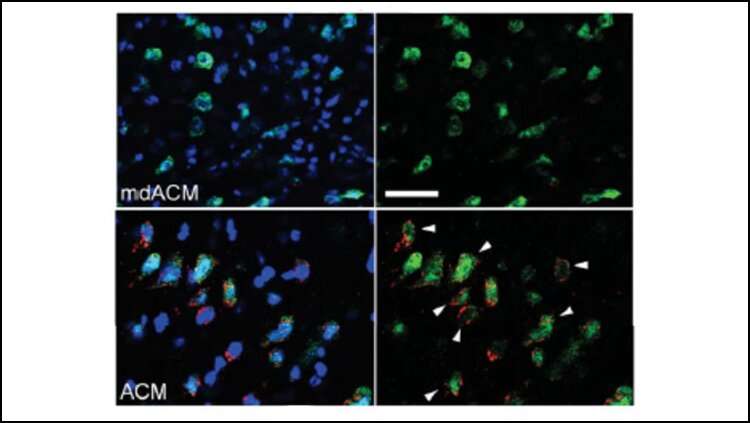Brain support cells transfer their mitochondria to fight free radicals

After a brain hemorrhage, neural support cells called astrocytes enhance healing by transferring their mitochondria to damaged neurons. The healthy mitochondria stimulate the production of a free radical-fighting enzyme, according to new research published in The Journal of Neuroscience.
An artery in the brain bursts. Blood rushes into the tissue, inducing free radicals that cause even more damage. The hemorrhage damages mitochondria, the site of energy production in cells. Astrocytes transfer their mitochondria to damaged neurons after a hemorrhage. These healthy mitochondria contain a "healing" peptide called humanin and an enzyme called manganese superoxide dismutase (Mn-SOD) that help neutralize free radicals.
Tashiro et al. injected mice with healthy mitochondria after a hemorrhage. The hemorrhage reduced levels of Mn-SOD in the mice brain and increased the number of free radicals. Using molecular tags, the researchers found that the rodents' neurons took up the mitochondria from the bloodstream. The mice who received the treatment showed improved neurological recovery, but the benefits decreased if the mice received mitochondria without the Mn-SOD enzyme. These results reveal mitochondria can transfer between brain cells to improve health and aid recovery.
More information: Ryosuke Tashiro et al, Transplantation of astrocytic mitochondria modulates neuronal antioxidant defense and neuroplasticity and promotes functional recovery after intracerebral hemorrhage, The Journal of Neuroscience (2022). DOI: 10.1523/JNEUROSCI.2222-21.2022




















